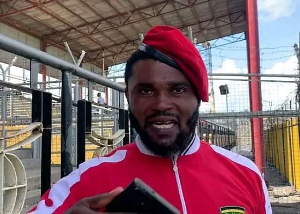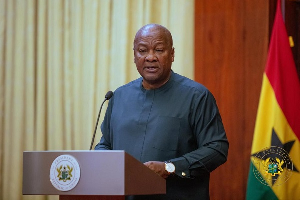Officers of the Police Motor Traffic and Transport Unit (MTTU), have been told to be more professional and avoid the temptation of doing things their own way and outside the law.
Assistant Commissioner of Police (ACP) Kwaku Ampofo Duku, the Deputy Ashanti Regional Commander, said the bad attitude of some of them was creating image problems for the service, and that, they need to reform.
He condemned the situation where they go to every length to find faults with drivers just to extort money from them.
ACP Duku said the MTTU’s rating as one of the most corrupt Unit’s by the Ghana Corruption Perception Index gave cause for concern and urged them to clean up their act.
He was speaking at a day’s training workshop to build the capacity of officers and men of the MTTU in Kumasi for efficient performance.
The Deputy Regional Commander’s other discomfort was with the practice of mounting road blocks to check motorists during rush hours, causing unnecessary traffic jam.
He said as they performed their duty of helping to make the roads safe, it was important to ensure that the traffic flows freely.
Superintendent Frank Abrokwah, the Regional MTTU Commander, said no effort would be spared to promote efficiency and discipline.
He expressed their determination to continue working hard to reduce road crashes and the safety of travellers.
Already, some progress had been made, looking at the 2015 first quarter crashes and that of 2014.
During the first three months of this year, the region recorded 288 crashes with 40 deaths as against last year’s (2014) figures of 373 crashes and 58 deaths for the same period.
Mr Bismark Boakye, the Regional Manager of the National Road Safety Commission (NRSC), praised the personnel for helping to reduce carnage on the roads and called for strong enforcement of traffic regulations to check speeding, driving under the influence of alcohol and overloading.
Mr. Sommik Duut Miilon, Advanced Emergency Medical Technician of the Ghana National Ambulance Service took personnel through how to protect themselves and accident victims during rescue missions.
Regional News of Saturday, 18 April 2015
Source: GNA

















